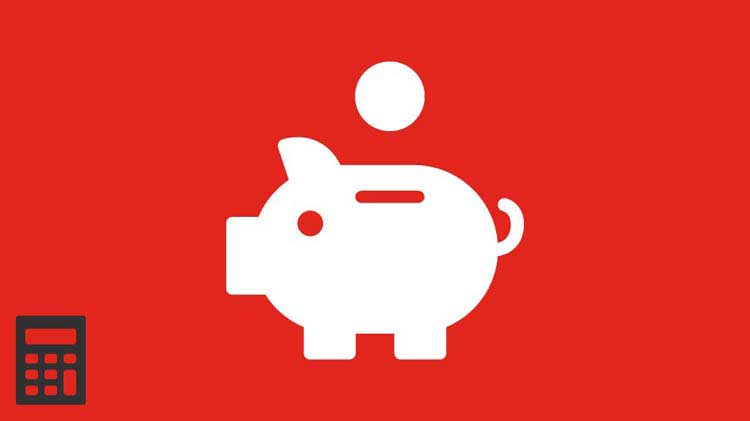What to consider before refinancing your home
Refinancing a home or mortgage has associated costs that can add up. Find out more about factors that play a role in refinancing like the loan amount, property location and more.
What is refinancing a home?
Refinancing, also known as a “refi,” is a service provided by lending institutions where the terms of an existing loan are revised or replaced altogether. When a borrower seeks to refinance, they aim to get approval from their lender for new terms that are better suited for their current financial situation. It’s worth noting that while refinancing most often involves the borrower and the original lender, sometimes a different lender will take over a loan to offer more favorable terms. In this case, if the refinance is approved, then a new contract is established that replaces the original loan agreement.
Get a homeowners insurance quote
Want to protect your home?
Benefits of refinancing
Refinancing a mortgage remains a popular choice for many homeowners due to the variety of benefits it can offer. However, only you can ultimately decide if refinancing is the right option for your needs. Some common reasons for refinancing include:
- Lower interest rate — refinancing can provide an opportunity to secure a lower interest rate than what you’re currently paying, resulting in lower monthly payments.
- Changing an adjustable-rate or fixed-rate mortgage — different mortgage types offer different benefits, and your preferences can change over time. Refinancing allows you to switch from one to the other. To learn more about the distinctions between the two, you may find our article on adjustable-rate versus fixed-rate mortgages helpful.
- Cash-out refinancing — a cash-out refinance allows you to convert your existing home equity into cash. With this option, you take on a bigger mortgage loan, pay off your initial mortgage and then receive the leftover funds as cash. Your cash-out refinance funds can then be put towards whatever you decide, which could mean consolidating debts, investment opportunities or a major purchase.
- Adjusting the loan term — refinancing can enable you to shorten or extend the term of your existing loan, allowing added flexibility in paying off the loan more quickly or extending the term to lower monthly payments.
Costs of refinancing
Cost can be one of the biggest things to consider before refinancing. The typical cost of a refinance ranges between 5% and 7% of the existing loan, though there are some ways to reduce or mitigate it. Some banks offer what they call a “no-cost” refinance, which eliminates the cost in exchange for an increased interest rate. While every refinance is different, if you do opt for a traditional refinance, that’s a considerable expense that you can factor into your budget planning.
Closing costs
Closing costs are another thing to consider as they're a more immediate cost of refinancing a home. Closing costs are upfront fees that must be paid before completing the refinancing process. Common fees include:
- Application fee — some lenders require a fee to process a refinancing application. This fee is paid upon submitting your application for refinancing and must be paid regardless of whether the refinance is approved.
- Appraisal fee — before a lender can approve refinancing a mortgage, they typically require a property appraisal. A licensed appraiser assesses the value of the property to help determine which refinancing options can be offered for the mortgage associated with that property.
- Inspection fee — this is location-dependent, but some states do require additional inspections before completing a refinance. In such cases, a fee is charged for the necessary property inspection.
- Attorney fees — some states require an attorney to review refinance documentation before a refinance can be finalized. This entails hiring an attorney and paying their review fee.
- Title search — primarily for homeowners looking to refinance with a different institution than the original loan issuer, you may be required to pay for a title search, like the process for acquiring the original loan.
- Title insurance — with a new lender, you might have to purchase title insurance again to protect both you and the new loan provider from potential outside claims to the property.
Some lenders may offer an option to bundle the closing costs into the refinance loan to avoid the need for upfront closing cost payment. If you believe this option would be beneficial, consult with your lender.
Should you refinance?
Before making any decisions on refinancing your mortgage, there are some refinancing considerations to factor in. Talk to a mortgage lender and ask yourself the following questions:
How old is my current mortgage?
If you're well into your current mortgage, evaluate how many years of mortgage payments refinancing will be added. Part of determining if you should refinance your home is answering the question of when you should refinance your mortgage. It typically doesn't make good financial sense to begin a 15-, 20- or 30-year mortgage if you only have 10 years left on your current loan. In the long run, you could end up paying thousands more in interest if you refinance, even if the interest rate and monthly payment are lower.
Plus, you pay primarily interest for the first few years of a mortgage. The same applies to a refinanced mortgage. So instead of making headway on the principal like you have been, you'll be back to nearly interest-only payments.
Does my current mortgage have a prepayment penalty?
Sometimes, paying off a mortgage early may come with the disadvantage of a prepayment penalty. If your mortgage has a prepayment penalty, you may be charged a fee if you refinance your loan because you're essentially paying off the loan before it's due. However, not all loans have a prepayment penalty. Check your loan's terms to determine if there is a prepayment penalty, and if so, what the penalty period and penalty amount entail. If you'll incur a prepayment penalty, add it to the list of refinancing fees for an accurate assessment of refinancing costs.
How long am I planning to stay here?
Your length of intended stay is crucial in deciding when to refinance your home. If you're planning to move within the next three years, you may not want to refinance your current mortgage. Recouping the costs of refinancing a home takes time; you can easily figure out how long it is by dividing the amount you'll pay in fees by the amount you'll save each month. The result is the number of months you have to break even on your new loan. If you're going to sell your home before that break-even point, refinancing might not make sense.
Am I out of equity?
Has your home's value dropped, requiring you to finance over 80% of your home's value? Or are you trying to get rid of a creative first mortgage-home equity combo loan? Mortgage loans that don't have an 80% loan-to-value ratio may require you to pay private mortgage insurance (PMI) each month to your lender.
PMI protects your lender in case you default on your loan, but premiums can add a significant amount to your monthly payment and are not tax-deductible. Because many lenders prefer that you have 20% equity in your home before authorizing a refinance, the amount of equity you’ve built up is a good consideration to have in mind. Be aware that it’s also possible to have what’s known as negative equity, a situation that occurs when the value of the home has fallen below the remaining balance owed on the house.
What's my credit score?
Your credit score directly determines your interest rate for a new mortgage. A 100-point difference in your credit score could result in thousands of dollars extra in interest payments for a 30-year mortgage, depending on the amount of the loan, according to FICO. Many people have misconceptions about some element of how credit scores work, so you may want to brush up on credit score facts and myths while looking into your credit.
If your credit score has taken a hit since you took out your current mortgage, you may want to work on improving your credit score before refinancing. Your credit score is a reflection of your credit history at only one moment in time, and it changes as new information is added to your credit report. Learn more about what is considered a good credit score and find ways on how to improve your credit score. Remember, mortgage lenders typically check your credit score from all three reporting bureaus, so you should, too. The myFICO™ website has a wealth of information about the connection between credit scores and mortgage rates.
What's my debt-to-income ratio?
Lenders use the debt-to-income ratio (DTI) as a key measure to assess loan feasibility. DTI refers to the amount of money a potential borrower spends on their current debts relative to their income. To calculate DTI, add all of your monthly minimum debt payments and divide that number by your monthly pre-tax income. It’s generally recommended by experts to avoid any large purchases if you’re being assessed for a refinance because of this. Large purchases typically incur debt and anything that has an effect on your credit score, your debt or your income will all affect how favorable or unfavorable the terms of your loan might be.
The resulting number is important for lenders considering a loan authorization. Whether you’re exploring refinancing options or not, calculating your DTI can offer valuable insights into your finances.
Do my need outweigh the costs?
Of course, your needs may outweigh your answers to the above questions and justify refinancing your mortgage. After all, you may need a lower monthly payment or to get out of an adjustable-rate mortgage before it readjusts, or want to consolidate high-interest debt, make home improvements or pay for education or medical expenses.
All of these factors can play a role in the refinancing options available to you and the terms of those options, but bear in mind that no two financial situations are the same. Consult with your lender and financial experts to help inform yourself of the possibilities before making any decisions on whether to refinance your mortgage.
You can get a homeowners insurance quote now, or give us a few details and a State Farm® agent will reach out to you.
The information in this article was obtained from various sources not associated with State Farm® (including State Farm Mutual Automobile Insurance Company and its subsidiaries and affiliates). While we believe it to be reliable and accurate, we do not warrant the accuracy or reliability of the information. State Farm is not responsible for, and does not endorse or approve, either implicitly or explicitly, the content of any third-party sites that might be hyperlinked from this page. The information is not intended to replace manuals, instructions or information provided by a manufacturer or the advice of a qualified professional, or to affect coverage under any applicable insurance policy. These suggestions are not a complete list of every loss control measure. State Farm makes no guarantees of results from use of this information.
Neither State Farm nor its agents provide tax or legal advice. Please consult your tax, legal, or investment advisor regarding your specific circumstances.
State Farm Fire and Casualty Company
State Farm General Insurance Company
Bloomington, IL
State Farm Florida Insurance Company
Tallahassee, FL
State Farm Lloyds
Richardson, TX




